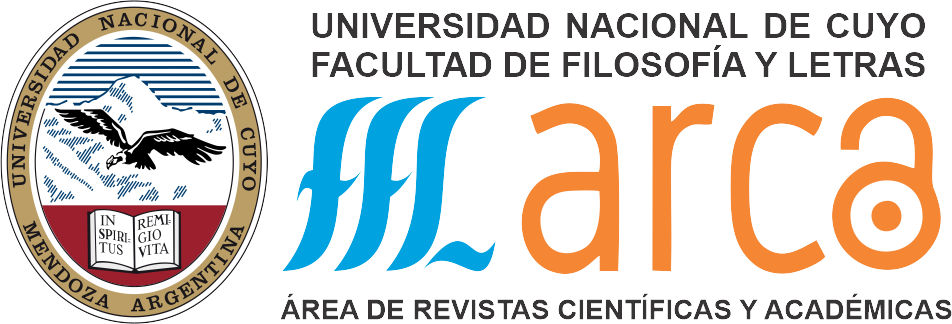The formation of ideological corpus of Carl Menger (1871-1886)
Keywords:
Carl Menger, Austrian School of Economics, History of Economic ThoughtAbstract
At the end of the 19th century, the work "Principles of political economy", by Carl Menger, is published in the context of academic and political divergences between Berlin and Vienna, becoming a founding document of a movement and, as a fundamental work in the History of economic thought, its main details will be explored within the variety of its themes. It is believed that Menger consolidates a position against the claims of the mainstream crystallized in German historicism. On the other hand, the forcefulness against the position of Berlin leads him to maintain that the nature and meaning of the exact orientation that define a new direction in the methodology of the social sciences. That is why this article seeks to reconstruct, through the analysis of contexts of the History of Economic Thought, the formation of Carl Menger's ideology through criticism of the intellectuals of Berlin and the postulates of classical economics.
References
ALTER, M. (1982). Carl Menger and Homo Oeconomicus: Some Thoughts on Austrian Theory and Methodology. En: Journal of Economic Issues 16, 1.
BRUNCH, R. (1985). On the historicization of the state sciences from the cameralistics to the historical school of the national economy. En: Berichte zur Wissenschaftsgeschichte, 8.
CALDWELL, B. (2004). Hayek’s Challenge: An Intellectual Biography of F.A. Hayek. Chicago: University of Chicago Press.
COATS, A.W. (1992). On the History of Economic Thought. British and American Economic Essays. Londres: Routledge, vol. 1.
CLARKE, S. (1982). Marx, Marginalism and Modern Sociology. Londres: MacMilian.
COATS, A. W. (1993). The Sociology and Professionalization of Economics. British and American Economic Essays. Londres: Routledge, vol. 2.
CUBEDDU, R. (1993). The philosophy of Austrian School of Economics. Nueva York: Routledge.
ECHEVERRIA, J. (1999). Introducción a la Metodología de la Ciencia. Madrid: Cátedra.
HUERTA DE SOTO, J. (2004). Estudios de Economía Política. Madrid: Unión Editorial.
HORWITZ, S. (2001) From Smith to Menger to Hayek: Liberalism in the Spontaneous- Order Tradition. En: The Independent Review, 6
KLEINWACHTER, F. (1872). The Faculties of Law and Political Science in Austria. Viena: Manz
LEISCHING, P. Y KANN, R. (1979). A life for art and popular education. Eduard Leisching memories. Vienna: Akademie der Wissenschaften.
LINDENFELD, D. (1997). The practical imagination: The german sciences of state in 19th century. Chicago: University of Chicago Press.
MARCUZZO, M. C. (2008). Is a history of economic thought a "serious" subject?. En: Volumen I, Erasmus Journal for Philosophy and Economics.
MARINI, A. (1982) ‘La codificazione in Germania’, reprinted in Marini, G. (1987) Storicità del diritto e dignità dell’uomo. Napoles: Morano.
MENGER, C. (2009). Investigations into the Method of the Social Sciences with special reference to Economics [1883]. Traducción de Francis J. Nock. Londres y Nueva York: New York University Press.
___________ (1997). Principios de Economía Política [1871] (2a ed.). España: Unión Editorial.
___________ (1884). Letter to Böhm-Bawerk, 13 November 1884, en: K. YAGI (1983). ‘Carl Menger’s Grundsätze in the Making’, History of Political Economy, 25.
___________ (1891). Carl Mengers Zusätze zu ‘Grundsätze der Volkswirtschaftslehre. Tokyo: Library of Hitotsubashi University.
___________ (1892). Carl Menger's Erster Entwurf zu seinen Hauptwerk ‘Grundsätze’ geschrieben als Anmerkungen zu den ‘Grundsätzen der Volkswirtschaftslehre’ von Karl Heinrich Rau. Tokyo: Library of Hitotsubashi University.
MILFORD, K. (1988) Menger’s Solution of the Problem of Induction: On the History of Methodological Thought in Economics. En: Working Paper no. 8806, Department of Economics, University of Vienna.
MIZBOATA, T. (ed.) (1993) Transcript of Finanz-Wissenschaft by Prof. Carl Menger (c. 1888), as Study Series, 28. En: Center for Historical Social Science Literature, Hitotsubashi University.
SCHIERA, P. A. (1987). Il laboratorio borghese. Bologna: Il Mulino.
SCHRUTTKA-RECHTENSTAMM, E. (1898). Rechts- und Staatswissenschaftliche FakultätIn. Viena: Holder.
SCHMOLLER, G. (1881). Brief an Menger. En: Verwaltung und Volkswirtschaft im deutschen Reich, 8.
SHEAMUR, J. (1996). Hayek and Aft er: Hayekian Liberalism as a Research Programme. Londres: Routledge.
STREISSLER, E. and STREISSLER, M. (eds) (1994), Carl Menger’s Lectures to Crown Prince Rudolf of Austria. Aldershot: Edward Elgar.
SCHULAK, E. y UNTERKÖFLER, H. (2011). The Austrian School of Economics: A History of Its Ideas, Ambassadors, & Institutions. Alabama: Ludwig von Mises Institute.
VON MISES, L. (1984). The Historical Setting of the Austrian School of Economics [1969]. Alabama: Ludwig von Mises Institute.
YAGI, K. (1993). Carl Menger’s Grundsätze in the Making. En: History of Political Economy, 25
Downloads
Published
How to Cite
Issue
Section
License
Copyright (c) 2020 Facundo Gustavo Corvalán

This work is licensed under a Creative Commons Attribution-NonCommercial-ShareAlike 3.0 Unported License.






















